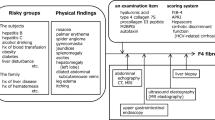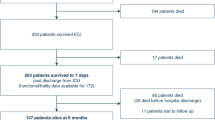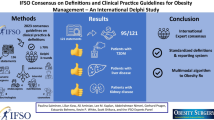Abstract
Purpose
Hematopoietic stem cell transplantation (HSCT) recipients experience several post-HSCT complications affecting nutritional status, body mass index (BMI), and mortality that can potentially be mitigated by nutritional management. This rapid review examines the relationship between pre-HSCT nutritional status and BMI and post-HSCT survival.
Methods
Articles were identified from PubMed, Scopus, and Embase. Two researchers independently completed the title, abstract, and full-text review. Inclusion criteria included the following: (1) randomized clinical trials or observational studies; (2) human subjects diagnosed with cancer and undergoing HSCT; (3) reported pre-HSCT nutritional status (e.g., diet recall, nutritional survey, dietitian session) or BMI; and (4) reported treatment related mortality and/or survival.
Results
The initial search found 3036 articles, 28 were included in full-text review, and 18 met inclusion criteria. Articles had quasi-experimental (n = 2) and observational (n = 16) study designs. Of the studies, n = 5 reported nutritional intake decreased post-HSCT, and n = 2 reported nutrition intervention (i.e., controlled feeding) post-HSCT improved survival. Four studies reported having a BMI classified as underweight improved survival, while n = 5 reported having a BMI classified as overweight or obese improved survival.
Conclusion
Current research exploring the relationship between nutritional status and BMI with HSCT survival is mixed. Further research is needed to determine how nutritional status and BMI are associated withsurvival post-HSCT to inform future intervention work.

Similar content being viewed by others
References
Jessop H et al (2019) General information for patients and carers considering haematopoietic stem cell transplantation (HSCT) for severe autoimmune diseases (ADs): a position statement from the EBMT Autoimmune Diseases Working Party (ADWP), the EBMT Nurses Group, the EBMT Patient, Family and Donor Committee and the Joint Accreditation Committee of ISCT and EBMT (JACIE). Bone Marrow Transplant 54(7):933–942
Burt RK et al (2006) Randomized controlled trials of autologous hematopoietic stem cell transplantation for autoimmune diseases: the evolution from myeloablative to lymphoablative transplant regimens. Arthritis Rheum 54(12):3750–3760
Ryan AM et al (2019) Effects of weight loss and sarcopenia on response to chemotherapy, quality of life, and survival. Nutrition 67-68:110539
Coa KI et al (2015) The impact of cancer treatment on the diets and food preferences of patients receiving outpatient treatment. Nutr Cancer 67(2):339–353
Fuji S et al (2015) Severe weight loss in 3 months after allogeneic hematopoietic SCT was associated with an increased risk of subsequent non-relapse mortality. Bone Marrow Transplant 50(1):100–105
Castro-Espin C, Agudo A (2022) The role of diet in prognosis among cancer survivors: a systematic review and meta-analysis of dietary patterns and diet interventions. Nutrients 14(2):348. https://doi.org/10.3390/nu14020348
Crowder SL et al (2018) Nutrition impact symptoms and associated outcomes in post-chemoradiotherapy head and neck cancer survivors: a systematic review. J Cancer Surviv 12(4):479–494
Koterazawa Y et al (2020) Severe weight loss after minimally invasive oesophagectomy is associated with poor survival in patients with oesophageal cancer at 5 years. BMC Gastroenterol 20(1):407
Crowder SL et al (2022) Mindfulness in adolescent and young adult (AYA) patients undergoing hematopoietic stem cell transplantation (HSCT): a qualitative study. Cancers (Basel) 14(11):2760. https://doi.org/10.3390/cancers14112760
Afessa B, Peters SG (2006) Major complications following hematopoietic stem cell transplantation. Semin Respir Crit Care Med 27(3):297–309
Rieger CT et al (2015) Weight loss and decrease of body mass index during allogeneic stem cell transplantation are common events with limited clinical impact. PLoS One 10(12):e0145445
Network NCC (2023) Hematopoietic cell transplantation guidelines 3. J Natl Compr Canc Netw 21(2):108–115. https://doi.org/10.6004/jnccn.2023.0007
Botti S et al (2015) Nutritional support in patients undergoing haematopoietic stem cell transplantation: a multicentre survey of the Gruppo Italiano Trapianto Midollo Osseo (GITMO) transplant programmes. Ecancermedicalscience 9:545
Muscaritoli M et al (2021) ESPEN practical guideline: clinical nutrition in cancer. Clin Nutr 40(5):2898–2913
Evans JC, Hirani SP, Needle JJ (2019) Nutritional and post-transplantation outcomes of enteral versus parenteral nutrition in pediatric hematopoietic stem cell transplantation: a systematic review of randomized and nonrandomized studies. Biol Blood Marrow Transplant 25(8):e252–e259
Akbulut G, Yesildemir O (2021) Overview of nutritional approach in hematopoietic stem cell transplantation: COVID-19 update. World J Stem Cells 13(10):1530–1548
Crowder SL et al (2019) Head and neck cancer survivors’ preferences for and evaluations of a post-treatment dietary intervention. Nutr J 18(1):57
Garritty C et al (2021) Cochrane Rapid Reviews Methods Group offers evidence-informed guidance to conduct rapid reviews. J Clin Epidemiol 130:13–22
Garritty C et al (2020) Assessing how information is packaged in rapid reviews for policy-makers and other stakeholders: a cross-sectional study. Health Res Policy Syst 18(1):112
Araie H et al (2019) Prediction of clinical outcome by controlling nutritional status (CONUT) before allogeneic hematopoietic stem cell transplantation in myeloid malignancies. Int J Hematol 110(5):599–605
Baumgartner A et al (2016) Association of nutritional parameters with clinical outcomes in patients with acute myeloid leukemia undergoing haematopoietic stem cell transplantation. Ann Nutr Metab 69:89
Brauer D et al (2021) Nutritional status at diagnosis and pre-transplant weight loss impact outcomes of acute myeloid leukemia patients following allogeneic stem cell transplantation. Hemasphere 5(3):e532
Brotelle T et al (2018) Prevalence of malnutrition in adult patients previously treated with allogeneic hematopoietic stem-cell transplantation. Clin Nutr 37(2):739–745
Dietrich S et al (2015) Pretransplant metabolic distress predicts relapse of acute myeloid leukemia after allogeneic stem cell transplantation. Tranplanation 99(5):1065–1071. https://doi.org/10.1097/TP.0000000000000471
Doney K et al (2019) Impact of body mass index on outcomes of hematopoietic stem cell transplantation in adults. Biol Blood Marrow Transplant 25(3):613–620
El-Ghammaz AMS et al (2017) Nutritional status of allogeneic hematopoietic stem cell transplantation recipients: influencing risk factors and impact on survival. Support Care Cancer 25(10):3085–3093
Ferreira EE et al (2014) Nutritional status of patients submitted to transplantation of allogeneic hematopoietic stem cells: a retrospective study. Rev Bras Hematol Hemoter 36(6):414–419
Kerby EH et al (2018) Nutritional risk factors predict severe acute graft-versus-host disease and early mortality in pediatric allogeneic hematopoietic stem cell transplantation. Pediatr Blood Cancer 65(2):26853. https://doi.org/10.1002/pbc.26853
Koch LOM et al (2022) Influence of body composition assessed by computed tomography on mortality in older adults undergoing hematopoietic stem cell transplantation. Nutr Clin Pract 37(6):1400–1408
Kranjčec I et al (2020) Nutritional status as a predictor of adverse events and survival in pediatric autologous stem cell transplant. Pediatr Hematol Oncol 37(8):717–731
Tamaki M et al (2021) Body weight loss before allogeneic hematopoietic stem cell transplantation predicts survival outcomes in acute leukemia patients. Transpl Cellul Ther 27(4):340.e1–340.e6
White M et al (2012) Survival in overweight and underweight children undergoing hematopoietic stem cell transplantation. Eur J Clin Nutr 66(10):1120–1123
Yang J et al (2017) Effect of body mass index on overall survival of patients with allogeneic hematopoietic stem cell transplantation. Eur J Clin Nutr 71(6):750–754
Pereira AZ et al (2021) Impact of obesity and visceral fat on mortality in hematopoietic stem cell transplantation. JPEN J Parenter Enteral Nutr 45(7):1597–1603
Urbain P et al (2013) Body mass index and bioelectrical impedance phase angle as potentially modifiable nutritional markers are independent risk factors for outcome in allogeneic hematopoietic cell transplantation. Ann Hematol 92(1):111–119
Urbain P et al (2013) Longitudinal follow-up of nutritional status and its influencing factors in adults undergoing allogeneic hematopoietic cell transplantation. Bone Marrow Transplant 48(3):446–451
Zama D et al (2020) Enteral nutrition protects children undergoing allogeneic hematopoietic stem cell transplantation from blood stream infections. Nutr J 19(1):29
Yang MJ et al (2022) A mindfulness-based stress management program for caregivers of allogeneic hematopoietic stem cell transplant (HCT) patients: Protocol for a randomized controlled trial. PLoS One 17(4):e0266316
Prevention, C.f.D.C.a. Defining adult overweight & obesity. 2022; Available from: https://www.cdc.gov/obesity/basics/adult-defining.html
Blanc KL, Ringden O, Remberger M (2003) A low body mass index is correlated with poor survival after allogeneic stem cell transplantation. Haematologica 88(9):1044–1052
Jaime-Pérez JC et al (2013) Obesity is associated with higher overall survival in patients undergoing an outpatient reduced-intensity conditioning hematopoietic stem cell transplant. Blood Cell Mol Dis 51(1):61–65
Ren G et al (2018) Impact of body mass index at different transplantation stages on postoperative outcomes in patients with hematological malignancies: a meta-analysis. Bone Marrow Transplant 53(6):708–721
Espinoza M et al (2016) Nutritional assessment as predictor of complications after hematopoietic stem cell transplantation. Rev Bras Hematol Hemoter 38(1):7–14
Yu J et al (2020) Obesity is correlated with poor outcome after allogeneic hematopoietic stem cell transplantation in patients with acute leukemia. Jpn J Clin Oncol 50(8):889–896
Aplenc R et al (2014) Effect of body mass in children with hematologic malignancies undergoing allogeneic bone marrow transplantation. Blood 123(22):3504–3511
Schoettler ML et al (2019) Very young children who undergo hematopoietic cell transplantation at weight extremes have inferior overall survival and increased transplant related morality. Biol Blood Marrow Transplant 25(3):S161
Eglseer D et al (2020) Nutritional problems and their non-pharmacological treatment in adults undergoing haematopoietic stem cell transplantation-a systematic review. Eur J Cancer Care (Engl) 29(6):e13298
Lyu M et al (2021) Comparison of autologous and allogeneic stem cell transplantation for patients with Philadelphia chromosome-positive acute lymphoblastic leukemia. Hematology 26(1):65–74
Beckstead JW (2014) On measurements and their quality: paper 3: post hoc pooling and errors of discreteness. Int J Nurs Stud 51(3):488–494
Author information
Authors and Affiliations
Contributions
RS, SLC, and AWB contributed to the development of the rapid review design, inclusion, and exclusion criteria. Article review and extraction was conducted by RS and SLC. LM contributed as nutritional expert and provided any necessary information for current protocols. The first draft of the manuscript was written by RS with support from SLC and AWB. All authors provided edits and approved the final manuscript before submission.
Corresponding author
Ethics declarations
Ethical approval
Not applicable
Competing interests
The authors declare no competing interests.
Additional information
Publisher’s Note
Springer Nature remains neutral with regard to jurisdictional claims in published maps and institutional affiliations.
Supplementary information
ESM 1
(DOCX 15 kb)
Rights and permissions
Springer Nature or its licensor (e.g. a society or other partner) holds exclusive rights to this article under a publishing agreement with the author(s) or other rightsholder(s); author self-archiving of the accepted manuscript version of this article is solely governed by the terms of such publishing agreement and applicable law.
About this article
Cite this article
Sauls, R., Buro, A.W., Montgomery, L. et al. Nutritional status and body mass index before hematopoietic stem cell transplantation (HSCT) and associated outcomes: a rapid review. Support Care Cancer 32, 50 (2024). https://doi.org/10.1007/s00520-023-08238-9
Received:
Accepted:
Published:
DOI: https://doi.org/10.1007/s00520-023-08238-9




